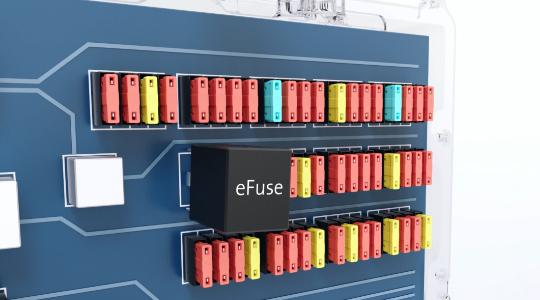In the realm of electronic devices and circuit protection, the emergence of eFuse has revolutionized traditional methods of safeguarding against electrical faults and overcurrent situations. This article delves into the intricacies of eFuse, exploring its functionality, applications, advantages, and drawbacks.
What is eFuse?
eFuse, short for electronic fuse, is a solid-state device designed to protect electronic circuits from overcurrent events. Unlike traditional fuses, which utilize a wire or filament that melts to interrupt the circuit during an overload, eFuses employ semiconductor technology to regulate and control current flow.

What is eFuse used for?
eFuse finds application in a wide array of electronic systems, ranging from consumer electronics and power supplies to automotive electronics and industrial equipment. Its primary function is to prevent damage to sensitive electronic components by limiting the current to a safe level during abnormal operating conditions such as short circuits, overloads, or voltage spikes. Helpful resource: https://www.ti.com/lit/pdf/slva862#:~:text=An%20eFuse%20is%20an%20%E2%80%9Cactive,polarity%20and%20short%20circuit%20faults.
What is the difference between fuse and eFuse?
The fundamental distinction between a traditional fuse and an eFuse lies in their operating mechanisms and characteristics. While conventional fuses rely on a physical element (such as a wire or filament) to melt and interrupt the circuit in case of overcurrent, eFuses utilize semiconductor devices and control circuitry to regulate the current flow. Additionally, eFuses offer features such as programmable current limits, thermal shutdown, and fault reporting capabilities, which are not present in traditional fuses. Helpful resource: https://www.powerelectronictips.com/fuses-efuses-thermistors-and-fusible-resistors-which-and-when-faq/#:~:text=An%20eFuse%20is%20more%20accurate,longer%20for%20other%20protection%20devices.
What are the disadvantages of eFuse?
Despite their numerous advantages, eFuses are not without their drawbacks. One notable disadvantage is their susceptibility to damage from transient voltage spikes or surges. Additionally, eFuses may have higher initial costs compared to traditional fuses, which can pose a barrier to adoption for some applications. Furthermore, the complexity of eFuse circuitry may require specialized knowledge for proper design and implementation. Helpful resource: https://www.chip37.com/PDF/NIS5112D1R2G%E5%BC%80%E5%8F%91%E6%89%8B%E5%86%8C.pdf
What are the benefits of eFuse?
eFuses offer several compelling benefits over traditional fuses, making them an attractive choice for modern electronic systems. One significant advantage is their ability to provide precise and adjustable current limiting, allowing for better protection of sensitive components. eFuses also offer faster response times compared to mechanical fuses, minimizing downtime and improving system reliability. Furthermore, features such as programmability, fault reporting, and thermal shutdown enhance system diagnostics and overall performance. Helpful resource: https://toshiba.semicon-storage.com/eu/semiconductor/knowledge/e-learning/efuse-ics/advantages-of-Semiconductor-fuse-eFuse-IC-2.html#:~:text=Compared%20with%20conventional%20fuses%2C%20eFuse,protection%20and%20high%20protection%20speed.
In conclusion, eFuse represents a significant advancement in electronic circuit protection technology, offering a versatile and efficient alternative to traditional fuses. While they may have some limitations, the benefits of eFuses in terms of precision, reliability, and functionality make them indispensable components in modern electronic designs. As technology continues to evolve, eFuses are poised to play a crucial role in ensuring the safety and integrity of electronic systems across various industries.
Facts Checked by Hugh Johnson
Hugh Johnson stands tall in the realms of both the chip industry and the electronic parts industry, earning acclaim as an esteemed expert in these fields. With an extensive background steeped in semiconductor technology, Hugh's expertise transcends chip design and fabrication, encompassing a profound understanding of electronic components' intricate functionalities and applications. His seasoned knowledge spans diverse facets, from microchip architecture and fabrication techniques to the broader landscape of electronic parts utilized across industries.









